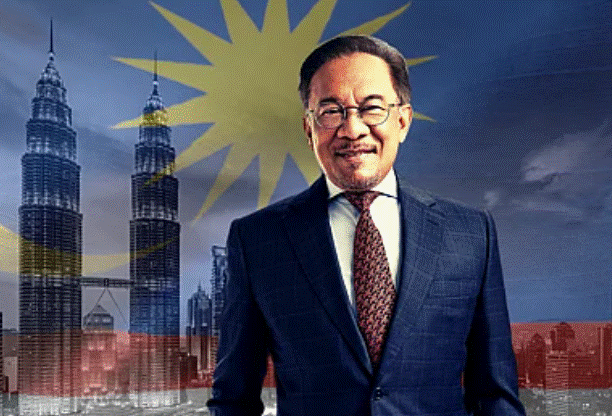KUALA LUMPUR – Malaysian Prime Minister Anwar Ibrahim has called on Southeast Asian nations to “act with purpose” and deepen economic ties among themselves in response to escalating global trade tensions, particularly the latest round of U.S. tariffs targeting six ASEAN countries.
Speaking at the opening of a high-stakes ASEAN Foreign Ministers’ Meeting in Kuala Lumpur on Tuesday, Anwar stressed the urgency of strengthening intra-ASEAN trade and investment, calling trade barriers and tariffs “sharpened instruments of geopolitical rivalry.”
“As global conditions remain uncertain, there is no overstating the need to fortify our internal foundations. We must trade more among ourselves, invest in each other, and advance sectoral integration with resolve,” said Anwar. Though he did not directly name the United States, his comments came just two days after U.S. President Donald Trump reimposed sweeping tariffs on Southeast Asian goods—ranging from 25% to 40%—as part of a wider push to counter what Washington describes as “unfair trade practices and proxy transshipments from China.”
Tariff Turbulence: ASEAN Responds to Washington’s Shock Move
The tariffs, announced on July 7, affect Malaysia, Indonesia, Thailand, the Philippines, Vietnam, and Cambodia, with Vietnam the only country to have secured a reduced rate of 20%, down from an initial 46%. The other nations are pushing for further negotiations before the measures take effect on August 1. The ASEAN bloc—collectively the world’s fifth-largest economy—warns that the sudden imposition of tariffs could undermine regional supply chains and economic resilience.
A draft joint communique seen by Reuters, dated before the tariff announcement, expresses concern over “unilateral actions relating to tariffs” and warns they are “counterproductive and risk exacerbating global economic fragmentation.” The draft notably refrains from naming the U.S. directly, a move seen as an attempt to avoid inflaming tensions further while maintaining diplomatic neutrality.
Key Global Players Join ASEAN Dialogue in Kuala Lumpur
This week’s meetings in Kuala Lumpur are drawing high-level delegations from ASEAN’s major dialogue partners, including China, Japan, the EU, India, Russia, and the United States. U.S. Secretary of State Marco Rubio, on his first official trip to Asia, is expected to meet with counterparts to ease tensions and rebuild goodwill damaged by the Trump administration’s hardline tariff strategy. China’s Foreign Minister Wang Yi and Russia’s Sergei Lavrov will also join discussions from July 10.
The U.S. tariffs come amid growing scrutiny of alleged transshipment practices, where goods from countries like China are routed through ASEAN nations to avoid direct duties. Lavanya Venkateswaran, Senior ASEAN Economist at OCBC Bank, warned of “heightened uncertainty” in enforcement, particularly for Vietnam, which has rapidly integrated into global supply chains.
No Retaliation Planned – But Bilateral Talks Will Intensify
Despite the shock, ASEAN nations have reiterated they will not retaliate. Instead, members are pursuing bilateral negotiations with Washington, promising that any individual deals will not come at the expense of other bloc members. Prime Minister Anwar’s remarks suggest that while the region remains open to dialogue with the U.S., ASEAN’s priority will be deeper economic cooperation from within.
“Only by reinforcing our internal resilience can we weather the headwinds of geopolitical conflict,” he said.
ASEAN’s Next Steps
With the U.S. tariffs set to come into force within weeks, ASEAN leaders face a critical decision point—whether to accelerate trade integration efforts long proposed but often delayed, or risk further fragmentation in a volatile global trade environment.
Observers say the next few days of meetings in Kuala Lumpur will test ASEAN’s cohesion and strategic clarity more than ever. (zai)
Photo: Malaysian Prime Minister Anwar Ibrahim

